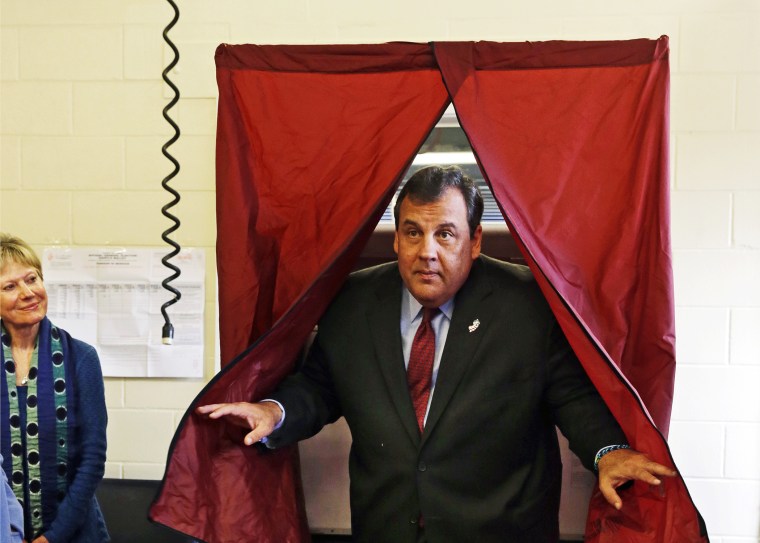It was just four years ago that a brash New Jersey governor by the name of Chris Christie (R) was letting reporters know exactly what they could expect from his leadership style.
"This is who I am," Christie said at the time. "Like it or not, you guys are stuck with me for four years and I'm going to say things directly when you ask me questions, I'm going to answer them directly, straightly, bluntly, and nobody in New Jersey is going to have to wonder where I am on an issue."
A lot's changed in four years.
Earlier this week, for example, the New Jersey governor was eager to condemn President Obama for working through a counter-terrorism policy in Syria. Asked what he'd do differently, Christie said he didn't want to talk about it.
Yesterday, it happened again.
Gov. Chris Christie, who has long avoided wading into the immigration debate, said Thursday in Mexico City that he won't lay out his position on immigration reform unless he decides to run for president. "Until that time I have no role in the immigration debate, except for how it may affect the individual citizens of New Jersey, which I'll deal with as governor," the New Jersey Republican told reporters. "But I won't have anything to say on immigration unless and until I become a candidate for president of the United States," he continued. "If that happens, then I will articulate a full position on it."
Hmm. Christie used to talk about his position on immigration; Christie feels comfortable attacking President Obama's position on immigration; but now, Christie believes his position on immigration should be hidden for a while. He won't even reiterate support for public remarks he's already made. Why? Because he says so.
It'd be less noticeable if this didn't come up quite so often.
Zeke Miller recently reported, for example that Christie is "making moves to prepare for a presidential run," but the governor does not "answer questions like a presidential candidate."
Should lawmakers raise the gas tax to pay for transportation projects? Christie didn't want to give an opinion. Should unaccompanied minors from Central America be sent back? Christie said he's "not going to get into all that." What should the U.S. policy be towards Hamas? Christie dodged that, too.
As we discussed a while back, he was asked for his opinion on the Supreme Court’s Hobby Lobby/contraception ruling and he refused to given an opinion either way. Before that, when the U.S. policy in Syria reached a crisis point, Christie refused to take a stand on that, too.
In an interview in July, the New Jersey Republican actually took some pride in his ability to dodge questions, saying it’s the mark of “a good leader.”
It’s actually the opposite. Good leaders generally aren't afraid to answer questions about current events, afraid of what one constituency or another might say in response. Christie used to present himself as a no-nonsense straight talker, afraid of nothing and no one. Now the prospect of sharing his take on the major issues of the day makes him uncomfortable, and perhaps even frightened.
Is this really the “brand” Christie wants to cultivate in advance of a national campaign?
